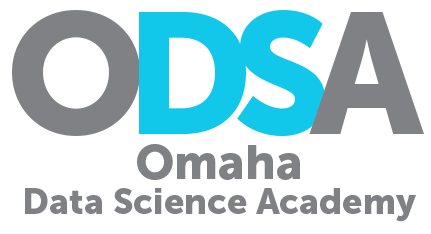MACHINE LEARNING
CERTIFICATE
Data Scientists are working with massive amounts of data. Machine Learning takes mountains or oceans of data and serve them up into “workable” solutions.
Deploying Machine not only saves time and money, it can help accelerate the decision making process. Having a solid understanding of when and where to deploy either option can also make you a hero to your company and the bottom line.
CERTIFICATION REQUIREMENTS
Prerequisite:
Working KNOWLEDGE of business intelligence (programming and SQL)
Complete ALL of the following:
Basic Model Building (Model 202)
3 hour sessions, two days/week for 4 weeks
Fundamentally, data science is using statistics and economic modeling to predict what is likely to happen next. This class will teach the student the fundamentals of how to build common algorithms inside of an industry-leading data science platform called Dataiku. This will include the basics of model evaluation, choosing target variables and characteristics, and basic machine learning. This module, taken individually, does not earn a student a certificate. This module, taken individually, does not earn a student a certificate.
AND
Mathematics of Model Evaluation (Eval 202)
3 hour sessions, two days/week for 4 weeks
This class will dive into the metrics behind evaluating an analytics model’s performance using F1, Accuracy, Precision, Recall, AUC, Cost matrix, and Cumulative Lift. Students also will learn to show the steps to building, testing, evaluating, adjusting/rebuilding, re-testing, and re-evaluating a model. Finally, students will learn which model to use, avoiding the pitfalls of just using accuracy as an indicator. This module, taken individually, does not earn a student a certificate.
AND
API & Cloud Database (Data 202)
3 hour sessions, two days/week for 4 weeks
Cloud Infrastructure and API Integration for Data Science focuses on leveraging the power of cloud platforms for scalable data science applications. It also covers the importance of APIs for data retrieval, sharing, and integration. Students will understand how to build, deploy, and manage data science pipelines in cloud environments. This module, taken individually, does not earn a student a certificate.
AND
Total Time/Cost to complete certification:
16 weeks/$8,550
what does a Machine Learning Programmer do?
A MACHINE LEARNING DATA SCIENTIST builds analytics tools that utilize a company’s data to provide proactive insights into customer acquisition, operational efficiency and other key business performance metrics.
COMMON TASKS OF A MACHINE LEARNING PROGRAMMER:
- Work with product owners, management staff, and/or customers to understand problems they are having
- Work with data engineers, data analysts, programmers, and data visualists to help find and maintain data to be used in modeling
- Build data models including model selection, model interpretation, and model management
- Present models to staff, management, and users
- Help implement and maintain those models in the enterprise


